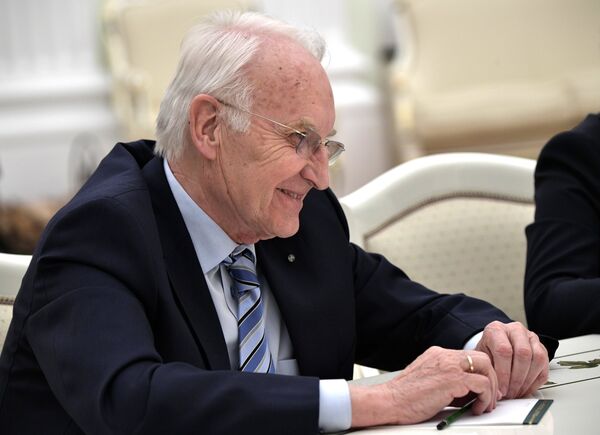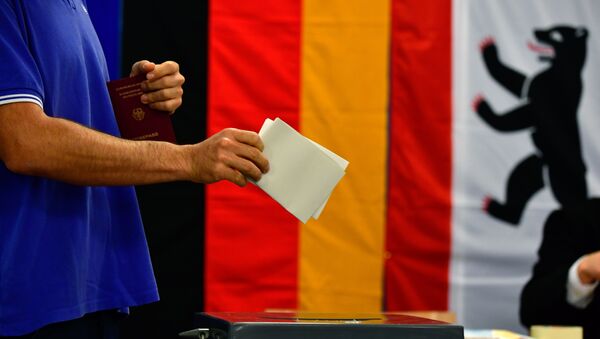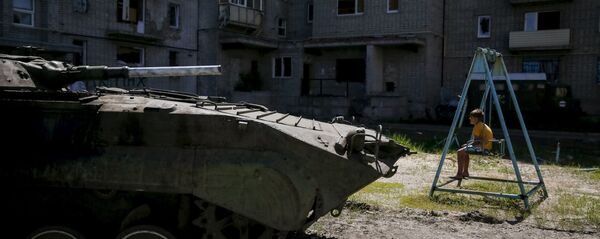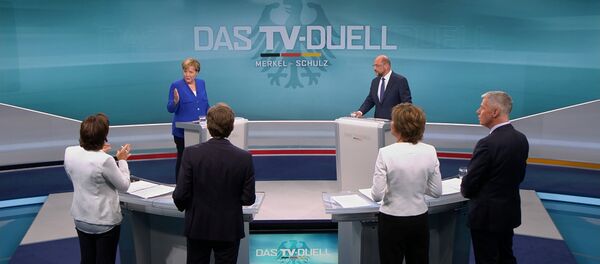Stoiber, who is also a prominent member of the Christian Social Union (CSU) party, rejected the allegations that under German Chancellor Angela Merkel, relations between Moscow and Berlin had significantly deteriorated.
"Angela Merkel and [Russian President] Vladimir Putin last met in [the Russian resort of] Sochi on May 2 and had [constructive] talks. Although this did not lead to a rapprochement in certain issues on which they occupy different positions, it is important that both sides continue to maintain a dialogue which yields fruit," Stoiber told Sputnik Germany.
Stoiber recalled that Putin signaled Russia's readiness to expand the functions of the proposed UN Mission in Ukraine's Donbass region, which it had outlined in a draft resolution for the UN Security Council.
"It shows that you can not only talk to each other, but also deal with concrete issues. Germany, Europe and Russia need each other to cope with many global problems. Moscow is part of the solution of many conflicts," he said, referring to Iran's nuclear program.

When asked what should or can happen after the German parliamentary elections in terms of Berlin's policy on Russia, he said that it is necessary "to wait for negotiations with potential partners in the coalition."
"The CSU, headed by Horst Seehofer and I, always believed that it is necessary to give signals that a gradual lifting of the [anti-Russian] sanctions is likely, amid appropriate dynamics from the Russian side," according to Stoiber.
He also quoted the leader of the liberal Free Democratic Party of Germany (FDP) Christian Lindner as saying that if positive tendencies in the Minsk process are in place, it will be possible to start lifting anti-Russian sanctions.
In addition, Stoiber mentioned cooperation with the Eurasian Economic Union and "the creation of a common economic space from Lisbon to Vladivostok," calling for joint steps to be taken in this direction.
"These are constructive initiatives to improve relations between Europe and Russia," he pointed out.
Stoiber also did not rule out the improvement in ties between Moscow and Berlin under the new German government, saying that the CSU adheres to "a special tradition of cooperation and relaxation of tension" in Russian-German relations.
He positively assessed German Foreign Minister Sigmar Gabriel's proposal to gradually weaken the anti-Russian sanctions if a ceasefire is reached in Donbass.
"These sanctions should not become a chronic phenomenon. The CSU clearly formulated this in its 'Bavarian Plan' ahead of the elections. The document says that 'we are in favor of adopting a plan to abolish the anti-Russian sanctions and support the flexible abolition of the sanctions in the event of the gradual implementation of the Minsk [peace] agreements," according to Stoiber.
He pointed to full-fledged "special relations" between Russia and Germany, which have "a long common history, in which there were ups and downs."
"Even if it is difficult to conduct a dialogue with Russia, we need to support it amid, of course, close coordination with our European partners," he said.
"Nevertheless, I do not give up hope," he added, referring to "an important signal" from Trump during his speech at the UN General Assembly in which he expressed special gratitude to Russia and China for their constructive role at the UN Security Council in connection with the unanimous support of the resolution on North Korea.
Stoiber also praised "extremely intensive and pivotal talks" between Putin and Trump on the sidelines of the G20 summit in Hamburg in July 2017.
"An agreement on sectoral truce in Syria, which was clinched during these talks, once again clearly indicated that pressing international issues cannot be resolved without Russia," he concluded.



